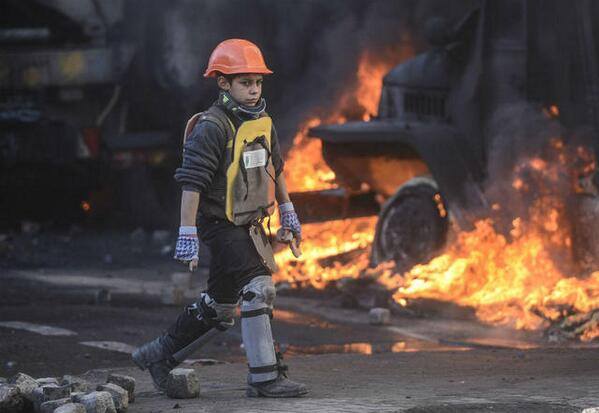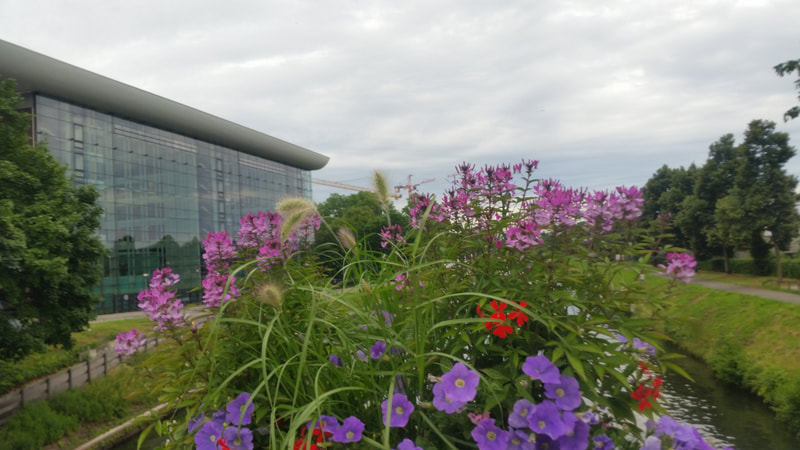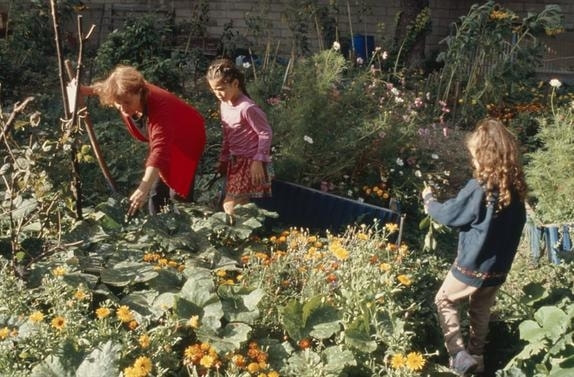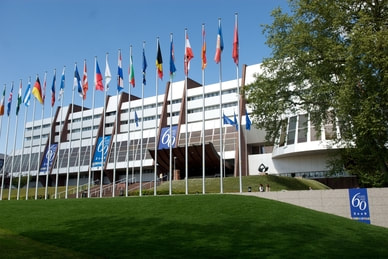December plenary session
Meeting held on 14 December 2021
Via the Bluejeans Platform
The Committee of the Conference of INGOs of the Council of Europe "Environmental and Health Crisis" gathered under the chairmanship of Anne-Marie CHAVANON, President of the Committee.
|
|
|
Parliaments and citizens acting together in the face of crisis
Magali PLOVIE, President of the frEnch-speaking parliament in Brussels : the example of deliberative committees

The President of the French-speaking parliament of Brussels illustrated how citizens were involved by the parliament in time of crisis through deliberative Committees gathering deputies and citizens to help the improvement of a specific situation through recommendations.
The problem to be faced could be raised either by parliamentarians or by citizens. If and when validated by the parliamentarians, it gives rise to the constitution of a deliberative committee
The committee is made in two different steps. In the first one, ten thousand residents are chosen at random (they do not need to be Belgian). Whoever answers positively, will again be part of a random choice but this time according to geographic, gender and socio-economic criteria.
Three committees are active at the moment
The deliberative committee on the role of Brussels citizens in time of crisis, chaired by the President herself, has been set up through 5 steps :
- 30th September: informative evening
- 3rd October: expertise
- 9th and 10th October: deliberative phase
- 17th October: recommendations (proposals and vote)
- 24th October: reading and adoption of the text
- July 2022: follow up of the recommendations through an event
Twenty two recommendations were adopted :
Recommendation 1
The deliberative commission recommends the setting up of a permanent structure of citizens, at the level of the Brussels-Capital Region. This permanent structure of citizens should be renewed once every two year and will be in charge of issuing opinions on the prevention, the management and the evaluation of a crisis. Depending on the nature of the crisis, the permanent structure calls for their contributions experts on economic, social and environmental fields and in particular, their opinion is requested on public health and security to provide advice to the government.
Recommendation 2
More information and communication, to encourage the use of the citizens' right of interpellation in each municipality and the right to petition the Parliament of the Brussels-Capital Region.
Recommendation 3
Institution of a permanent representative per district, in each municipality. The mission of this representative is to get to know the people in the district, with particular attention to the most vulnerable ones.
Recommendation 4
A system of "popular consultation" in which the Public Authorities can question the citizens concerned on various communal, regional or federal subjects.
Recommendation 5
Widening access to security and crisis management training,
Recommendation 6
A free training on first aid, in primary and secondary schools, in collaboration with the competent existing training associations.
Recommendation 7
Schools and local residents included in local crisis plan exercises, in partnership with the head of the municipal crisis unit and the emergency services.
Recommendation 8
Reinforcing the means to ensure a citizen service accessible to all young people in Brussels. T
Recommendation 9
Implementation of empowerment tools, in crisis situations, for citizens of all ages at the local level
Recommendation 10
Creation of a reserve list of voluntary citizens who can be mobilised in times of crisis. Associations, groups, companies, etc., can also volunteer on this list. On the reserve list the different expertise can be found.
Recommendation 11
Study of the opportunity and feasibility of setting up a reserve of volunteer fire brigades, which does not currently exist in Brussels.
Recommandation 12
Means to ensure the reception and management of new volunteers in times of crisis.
Recommendation 13
More legible and accessible support services, creation of a single digital and necessarily physical contact point.
Recommendation 14
Creation of a cell in the organisation chart of Public Administrations.
Recommendation 15
Setting up of participatory discussion groups; physical or digital, allowing citizens to communicate their feelings about the measures applied by the government in a period of crisis.
Recommendation 16
Targeted actions at local level to raise awareness, inform, train, support and guide citizens, both in terms of crisis prevention and crisis management.
Recommendation 17
Structuring an outreach system such as door-to-door outreach, as well as training and equipping outreach workers to better direct citizens to specialised services, in order to reach everyone in times of crisis.
Recommendation 18
Public authorities must mandate a single, independent spokesperson to disseminate the same information on the decisions taken on all modes of communication (television, written press, internet, etc.)
Recommendation 19
Discussion forums (provision of a room on a communal or regional scale) for citizens to help them get through a crisis on a psychological, administrative or economic level, etc.
Recommendation 20
Means of communication to be used in times of crisis: website, free mobile application without registration, social networks, freephone number, interactive digital platform, brochures, flyers, media, information through associations, neighbourhood ambassadors, municipal services, schools, hospitals, etc.
Recommendation 21
Various crisis and emergency management tools to be brought together in a single portal and that a wide-ranging communication campaign be conducted, using all possible channels, to publicise this single portal.
Recommendation 22
A uniform, multimodal and inclusive crisis communication plan be drawn up, involving the citizens and taking into account the specificities of the target audiences.
Link to the Parliament website : https://democratie.brussels/assemblies
The problem to be faced could be raised either by parliamentarians or by citizens. If and when validated by the parliamentarians, it gives rise to the constitution of a deliberative committee
The committee is made in two different steps. In the first one, ten thousand residents are chosen at random (they do not need to be Belgian). Whoever answers positively, will again be part of a random choice but this time according to geographic, gender and socio-economic criteria.
Three committees are active at the moment
The deliberative committee on the role of Brussels citizens in time of crisis, chaired by the President herself, has been set up through 5 steps :
- 30th September: informative evening
- 3rd October: expertise
- 9th and 10th October: deliberative phase
- 17th October: recommendations (proposals and vote)
- 24th October: reading and adoption of the text
- July 2022: follow up of the recommendations through an event
Twenty two recommendations were adopted :
Recommendation 1
The deliberative commission recommends the setting up of a permanent structure of citizens, at the level of the Brussels-Capital Region. This permanent structure of citizens should be renewed once every two year and will be in charge of issuing opinions on the prevention, the management and the evaluation of a crisis. Depending on the nature of the crisis, the permanent structure calls for their contributions experts on economic, social and environmental fields and in particular, their opinion is requested on public health and security to provide advice to the government.
Recommendation 2
More information and communication, to encourage the use of the citizens' right of interpellation in each municipality and the right to petition the Parliament of the Brussels-Capital Region.
Recommendation 3
Institution of a permanent representative per district, in each municipality. The mission of this representative is to get to know the people in the district, with particular attention to the most vulnerable ones.
Recommendation 4
A system of "popular consultation" in which the Public Authorities can question the citizens concerned on various communal, regional or federal subjects.
Recommendation 5
Widening access to security and crisis management training,
Recommendation 6
A free training on first aid, in primary and secondary schools, in collaboration with the competent existing training associations.
Recommendation 7
Schools and local residents included in local crisis plan exercises, in partnership with the head of the municipal crisis unit and the emergency services.
Recommendation 8
Reinforcing the means to ensure a citizen service accessible to all young people in Brussels. T
Recommendation 9
Implementation of empowerment tools, in crisis situations, for citizens of all ages at the local level
Recommendation 10
Creation of a reserve list of voluntary citizens who can be mobilised in times of crisis. Associations, groups, companies, etc., can also volunteer on this list. On the reserve list the different expertise can be found.
Recommendation 11
Study of the opportunity and feasibility of setting up a reserve of volunteer fire brigades, which does not currently exist in Brussels.
Recommandation 12
Means to ensure the reception and management of new volunteers in times of crisis.
Recommendation 13
More legible and accessible support services, creation of a single digital and necessarily physical contact point.
Recommendation 14
Creation of a cell in the organisation chart of Public Administrations.
Recommendation 15
Setting up of participatory discussion groups; physical or digital, allowing citizens to communicate their feelings about the measures applied by the government in a period of crisis.
Recommendation 16
Targeted actions at local level to raise awareness, inform, train, support and guide citizens, both in terms of crisis prevention and crisis management.
Recommendation 17
Structuring an outreach system such as door-to-door outreach, as well as training and equipping outreach workers to better direct citizens to specialised services, in order to reach everyone in times of crisis.
Recommendation 18
Public authorities must mandate a single, independent spokesperson to disseminate the same information on the decisions taken on all modes of communication (television, written press, internet, etc.)
Recommendation 19
Discussion forums (provision of a room on a communal or regional scale) for citizens to help them get through a crisis on a psychological, administrative or economic level, etc.
Recommendation 20
Means of communication to be used in times of crisis: website, free mobile application without registration, social networks, freephone number, interactive digital platform, brochures, flyers, media, information through associations, neighbourhood ambassadors, municipal services, schools, hospitals, etc.
Recommendation 21
Various crisis and emergency management tools to be brought together in a single portal and that a wide-ranging communication campaign be conducted, using all possible channels, to publicise this single portal.
Recommendation 22
A uniform, multimodal and inclusive crisis communication plan be drawn up, involving the citizens and taking into account the specificities of the target audiences.
Link to the Parliament website : https://democratie.brussels/assemblies
Federica Irene MOLINARO - focus on third sectors’ engagement : co-designing projects

On behalf of the Veneto Region, Federica Irene Molinaro presented some contributions and reflections from a Public Authority perspective on citizens’ participation for co-designing projects and interventions on social issues.
More precisely, she illustrated the Italian co-production and co-planning paths between public services and third sector organisations, including a specific testimony on a local project coordinated by the Veneto Region focused on the support to victims of trafficking.
Some key information was provided on the 2017 Italian National Law on the third sector (Law n. 117/2017), which has set up some very innovative participation instruments for non-profit organisations: in fact, articles 55 and 56 of this law have instituted the so-called co-production and co-planning processes. These legislative instruments bring together public services and third sectors and allow them to work together for defining action plans or single projects targeting people's needs. This cooperative approach can improve the efficiency of local services ensuring that they meet the needs of local people, especially those who need the services most.
She stressed that community participation, represented by non-profit organisations, lies at the heart of the co-production and the co-planning processes, and is implemented in the development, design and delivery of plans and projects with public institutions.
The Italian legislative framework on communities’ participation fits very much with the ideal that cooperation between private and public institutions can lead to a stronger and deeper identification of local needs and consequently it can contribute to better and more effective public services. It represents an expression of democracy, subsidiarity, participation.
A concrete implementation of these participation tools is provided by the Italian Law on Third Sector that has been taken into consideration for the design of the project “N.A.V.I.G.A.Re - Veneto Anti-trafficking Network Governance and Regional Actions. This project is coordinated by the Veneto Region and it is funded by the Italian Presidency of the Council of Ministers, Department for Equal Opportunities. It aims to consolidate an integrated system for the protection and assistance of victims of trafficking and / or serious exploitation. The objective is guaranteeing access to social rights, regardless to legal status, age, nationality, gender, and type of exploitation (sexual, labour, forced begging, forced criminal activities, forced marriages).
The project tasks respond to the objectives of the National Action Plan against Trafficking in Human Beings, related to the National Law n. 286/1998, so they represent an important public - private service for vulnerable people.
The Veneto Region, in the phase of project design, wanted to valorise the local non-profit organisations, strongly experienced in supporting victims of trafficking, considering that the phenomenon has been deeply changed because of Covid-19 pandemic. It was necessary to have a precise vision of the real needs affecting the target groups. For these reasons, the Veneto Region set up a public procedure for co-designing the project N.A.V.I.G.A.Re.; more than 10 local non-profit organisations took active part in the co-design activities.
Due to the severity of the traumas experienced by the target population a meaningful goal addressed by the project is to put in place more effective protection measures with a wide and bottom-up identification of needs.
The conclusion underlined the the key factors and strengths of this experience:
- The public-private partnership and multi agency approach has guaranteed a better identification of needs and a shared commitment which is leading to a better protection and promotion of social rights of vulnerable people in local communities.
- An important outcome of this experience is also the creation of a climate of trust, a durable cooperation between public and private institutions, sharing responsibilities, duties, and results.
More precisely, she illustrated the Italian co-production and co-planning paths between public services and third sector organisations, including a specific testimony on a local project coordinated by the Veneto Region focused on the support to victims of trafficking.
Some key information was provided on the 2017 Italian National Law on the third sector (Law n. 117/2017), which has set up some very innovative participation instruments for non-profit organisations: in fact, articles 55 and 56 of this law have instituted the so-called co-production and co-planning processes. These legislative instruments bring together public services and third sectors and allow them to work together for defining action plans or single projects targeting people's needs. This cooperative approach can improve the efficiency of local services ensuring that they meet the needs of local people, especially those who need the services most.
She stressed that community participation, represented by non-profit organisations, lies at the heart of the co-production and the co-planning processes, and is implemented in the development, design and delivery of plans and projects with public institutions.
The Italian legislative framework on communities’ participation fits very much with the ideal that cooperation between private and public institutions can lead to a stronger and deeper identification of local needs and consequently it can contribute to better and more effective public services. It represents an expression of democracy, subsidiarity, participation.
A concrete implementation of these participation tools is provided by the Italian Law on Third Sector that has been taken into consideration for the design of the project “N.A.V.I.G.A.Re - Veneto Anti-trafficking Network Governance and Regional Actions. This project is coordinated by the Veneto Region and it is funded by the Italian Presidency of the Council of Ministers, Department for Equal Opportunities. It aims to consolidate an integrated system for the protection and assistance of victims of trafficking and / or serious exploitation. The objective is guaranteeing access to social rights, regardless to legal status, age, nationality, gender, and type of exploitation (sexual, labour, forced begging, forced criminal activities, forced marriages).
The project tasks respond to the objectives of the National Action Plan against Trafficking in Human Beings, related to the National Law n. 286/1998, so they represent an important public - private service for vulnerable people.
The Veneto Region, in the phase of project design, wanted to valorise the local non-profit organisations, strongly experienced in supporting victims of trafficking, considering that the phenomenon has been deeply changed because of Covid-19 pandemic. It was necessary to have a precise vision of the real needs affecting the target groups. For these reasons, the Veneto Region set up a public procedure for co-designing the project N.A.V.I.G.A.Re.; more than 10 local non-profit organisations took active part in the co-design activities.
Due to the severity of the traumas experienced by the target population a meaningful goal addressed by the project is to put in place more effective protection measures with a wide and bottom-up identification of needs.
The conclusion underlined the the key factors and strengths of this experience:
- The public-private partnership and multi agency approach has guaranteed a better identification of needs and a shared commitment which is leading to a better protection and promotion of social rights of vulnerable people in local communities.
- An important outcome of this experience is also the creation of a climate of trust, a durable cooperation between public and private institutions, sharing responsibilities, duties, and results.
Giving young people their say
social and health common challenges and problems in times of crisis. Research conducted by students of the Rotterdam University of Applied Sciences. Elena Curtopassi Rapporteur
The rapporteur introduced the fragile situation of young and vulnerable people during the COVID pandemic crisis. This topic has also been the focus of a project developed in collaboration with the University of Applied Sciences of Rotterdam: “Minors Beyond Border”. The objective of this project has been focused on reducing health inequality in inclusive cities and analysing the impact of the Venice Declaration (launched by IFFD International Federation for Family Development, in collaboration with the ELISAN Network and the Veneto Region to implement SDG 11 with families as agents of development).
The Students started their work with the preparation of an action plan in Brussels during the second week of September 2021. They visited some Brussels based regional offices: Veneto Region (Italy), Carinthia (Austria), Friuli-Venezia-Giulia (Italy), Attica (Greece) and Kujawsko-Pomorskie (Poland). Afterwards they went to Marseille and Veneto to get insights regarding strategies to reduce health inequalities, increasing the support and involvement of youngsters supported by a research about finding possibilities and cooperation partners.
The Students started their work with the preparation of an action plan in Brussels during the second week of September 2021. They visited some Brussels based regional offices: Veneto Region (Italy), Carinthia (Austria), Friuli-Venezia-Giulia (Italy), Attica (Greece) and Kujawsko-Pomorskie (Poland). Afterwards they went to Marseille and Veneto to get insights regarding strategies to reduce health inequalities, increasing the support and involvement of youngsters supported by a research about finding possibilities and cooperation partners.
Introduction by Rens MARTIJN, Professor at the Rotterdam University of Applied Sciences (Netherlands), and by Ignacio SOCIAS, Director of International Relations and International Federation for Family Development (Spain) and Director of IFFD
The speakers introduced the framework of the project Minors Beyond Border carried out by the students of the University of Applied Sciences of Rotterdam. The project represents an opportunity to focus on the implementation of the Venice Declaration. Students had the opportunity to learn about the best practices to prevent mental problems, to address the senior’s needs and challenges and to help families who found themselves in vulnerable situations during the pandemic
Pauline ERKELENS, University of Applied Sciences (Netherlands) - The Connecting (future) healthcare professionals
Presentation: Connecting (future) healthcare professionals.
The project took place in Italy (Veneto Region) where the students examined the challenges that the healthcare system was and still is facing.
The problem that was becoming clear is that there is a higher workload and a shortage of healthcare professionals in basically every sector, as a result the care recipients did not have easy accessibility to the care they need. This project looked at the accessibility of care for vulnerable people. In addition, the shortages within the care sector.
This was done by having conversations and brainstorming sessions with healthcare workers from different healthcare facilities, nurses, psychologists, educators and directors of healthcare facilities. Which gave us an impressive and interesting insight into the whole situation.
Challenges
They found out that there is a need for an easier way to work together with other countries to overcome the problem. There was a need for a place where healthcare workers can share concerns and questions, a place where they can help each other to improve the healthcare system.
At the end of the project the objective was to set up a platform where different countries can work together to reduce staff shortages. The scope was not only to reduce shortages, but to create a place where international professionals and students can come together to share experiences and ask questions.
Prototype 1
Comments from the students: “Working with a broad team of people at an international level has been a wonderful experience. It's special that we were able to participate and be involved in a European challenge and it has been an impressive experience. Even though the language barrier was difficult sometimes, we were able to make great connections that will be useful for our future career paths. And even though covid got in the way sometimes with restrictions, with great help from our supervisors we were able to make it work. With great connections you can come very far.
Key message:
It's important to help and support each other in post-Covid time to provide the best healthcare to people.
We wanted to create a space where supply and demand in healthcare settings can be matched, innovative projects by the younger and older generations can be set up and new experiences can be gained. All on one easy platform, and without the risk of catching Covid.”
Marta AKINOLA, University of Applied Sciences (Netherlands) - The importance of safety on mental health in the framework of Inclusive cities for sustainable families project.
Introduction group and subject
The group of students represented by Marta Akinola, developed the project on the Point 4 of the Venice Declaration, concerning Healthcare: “Organization of campaigns to promote healthy habits and lifestyles, especially those targeted top revent mental disorders and to meet the needs of older persons, setting the necessary structure to stimulate innovation and intergenerational relations in hospitals as well as medical attention of visitors and tourists.”
During a period of four months, the students have been researching the connection between homelessness and mental health problems. They also searched for organisations and health care providers that are involved with this target-group.
The project started in Marseille with daily challenges, since homelessness is a huge issue in several cities.
Indeed, just in Europe 700.000 people sleep on the streets each night. This represents an increase of 70% in the last 10 years (News European Parliament, 2020). Homeless people have survival priorities: financial problems often interfere with care access and social exclusion. Economic and financial problems have hugely and quickly increased during the pandemic with homelessness as the ultimate consequence.
Homelessness and mental health
According to the European centre for social welfare policy and research (2021) causes of homelessness are complex, since there are many different factors that contribute to an individual or family becoming homeless. Structural, individual, and family related factors could both play a role in causing homelessness.
The students decided to focus on the homeless who suffer from mental health disorders, since various studies showed them, that prior exposure to housing disadvantage is consistently associated with worse mental health (Singh et al., 2019).
In addition, it has also been documented (Slockers et al., 2018) that there is a high prevalence of mental health disorders, such as anxiety, panic, depression, and psychotic symptoms among homeless people, this is related to an increased risk of suicide. Homelessness is not only caused by mental health problems, but this lifestyle also causes to develop mental health problems. Since homeless people are constantly exposed to unsafe and stressful situations.
Impact of covid on the target group
Impact of the pandemic on the homeless:
During the COVID pandemic, care for the homeless has become of even greater importance. Living on the streets means it is really hard for the homeless to comply with the Covid rules and this adds an extra stress factor.
Homeless people are more likely to suffer from a severe form of COVID, this adds up to multiple existing somatic and mental illnesses that the homeless often suffer from.
Impact of the pandemic on organisations and care providers:
During the pandemic not all shelters were available to screen new residents. Unfortunately, some were forced to reduce the capacity to follow the Covid rules and to be able to self-isolate some residents.
This and other rules are leading to a higher work pressure for the staff (Nicholas et al., 2021).
Best practices
“During our journey we were able to visit and speak to many organisations and initiatives that are engaged in the welfare of the homeless. Despite Covid, we were warmly welcomed, and we were able to discuss our topic and their perspectives at length.
In Marseille, one of the organisations we talked to is Coco Velten. Coco Velten creates an empowering space for people in recovery. It is a place of accommodation and a sustainable shelter for people who are homeless. Within this community, the homeless are called ‘The Neighbours’. They are involved in projects and activities that are organised at Coco Velten. In this way their self-worth will grow back. The possibility of a longer stay at Coco Velten, brings a positive side effect: The new ‘neighbours’ are helped by the ‘neighbours’ who have been there longer. This provides an indirect solution for the shortage of social workers.
Besides that, we have learned that also other organisations, like Nouvelle Aube (Marseille) and Casa dell’ Ospitalita (Mestre) are working actively with professionals with experiences in the homelessness field.
Conclusions so far
Within Coco Velten, but also at organizations like Accueil du jour (Marseille) and Nouvelle Aube (Marseille), it has been shown that experts with experiences of homelessness can play a major role in helping the homeless more effectively, by creating safety and trust. We have learned that inclusion and a long-term stay could contribute to creating a safe recovery place. Several organisations we've visited confirmed these matters.
Challenges:
Even though there’s a big variety of organisations involved with helping people who are homeless. Some of the homeless still decide not to seek help. Unfortunately, organisations can not always guarantee safety, because violence and theft also take place within the shelters. This could mean that the homeless do not feel safe and cannot find peace. But the stress they experience on the streets is not much better. Organisations should be able to guarantee safety. Due to the constant moving and stress, the homeless are not able to recover from their trauma and to focus on their future.
To Conclude:
The homeless should be given a long-term place where they can feel safe and welcomed. By creating an overview of best practices and interventions that contribute to creating this safety, we hope that many organisations in different Regions can learn from each other and can create more safety.
Our following steps:
By planning deepening conversations with organisations that are involved with our target-group, we will identify the main causes of unsafety, within organisations and shelters. For one of those causes we will use the design-thinking method to design a creative prototype solution.”
The group of students represented by Marta Akinola, developed the project on the Point 4 of the Venice Declaration, concerning Healthcare: “Organization of campaigns to promote healthy habits and lifestyles, especially those targeted top revent mental disorders and to meet the needs of older persons, setting the necessary structure to stimulate innovation and intergenerational relations in hospitals as well as medical attention of visitors and tourists.”
During a period of four months, the students have been researching the connection between homelessness and mental health problems. They also searched for organisations and health care providers that are involved with this target-group.
The project started in Marseille with daily challenges, since homelessness is a huge issue in several cities.
Indeed, just in Europe 700.000 people sleep on the streets each night. This represents an increase of 70% in the last 10 years (News European Parliament, 2020). Homeless people have survival priorities: financial problems often interfere with care access and social exclusion. Economic and financial problems have hugely and quickly increased during the pandemic with homelessness as the ultimate consequence.
Homelessness and mental health
According to the European centre for social welfare policy and research (2021) causes of homelessness are complex, since there are many different factors that contribute to an individual or family becoming homeless. Structural, individual, and family related factors could both play a role in causing homelessness.
The students decided to focus on the homeless who suffer from mental health disorders, since various studies showed them, that prior exposure to housing disadvantage is consistently associated with worse mental health (Singh et al., 2019).
In addition, it has also been documented (Slockers et al., 2018) that there is a high prevalence of mental health disorders, such as anxiety, panic, depression, and psychotic symptoms among homeless people, this is related to an increased risk of suicide. Homelessness is not only caused by mental health problems, but this lifestyle also causes to develop mental health problems. Since homeless people are constantly exposed to unsafe and stressful situations.
Impact of covid on the target group
Impact of the pandemic on the homeless:
During the COVID pandemic, care for the homeless has become of even greater importance. Living on the streets means it is really hard for the homeless to comply with the Covid rules and this adds an extra stress factor.
Homeless people are more likely to suffer from a severe form of COVID, this adds up to multiple existing somatic and mental illnesses that the homeless often suffer from.
Impact of the pandemic on organisations and care providers:
During the pandemic not all shelters were available to screen new residents. Unfortunately, some were forced to reduce the capacity to follow the Covid rules and to be able to self-isolate some residents.
This and other rules are leading to a higher work pressure for the staff (Nicholas et al., 2021).
Best practices
“During our journey we were able to visit and speak to many organisations and initiatives that are engaged in the welfare of the homeless. Despite Covid, we were warmly welcomed, and we were able to discuss our topic and their perspectives at length.
In Marseille, one of the organisations we talked to is Coco Velten. Coco Velten creates an empowering space for people in recovery. It is a place of accommodation and a sustainable shelter for people who are homeless. Within this community, the homeless are called ‘The Neighbours’. They are involved in projects and activities that are organised at Coco Velten. In this way their self-worth will grow back. The possibility of a longer stay at Coco Velten, brings a positive side effect: The new ‘neighbours’ are helped by the ‘neighbours’ who have been there longer. This provides an indirect solution for the shortage of social workers.
Besides that, we have learned that also other organisations, like Nouvelle Aube (Marseille) and Casa dell’ Ospitalita (Mestre) are working actively with professionals with experiences in the homelessness field.
Conclusions so far
Within Coco Velten, but also at organizations like Accueil du jour (Marseille) and Nouvelle Aube (Marseille), it has been shown that experts with experiences of homelessness can play a major role in helping the homeless more effectively, by creating safety and trust. We have learned that inclusion and a long-term stay could contribute to creating a safe recovery place. Several organisations we've visited confirmed these matters.
Challenges:
Even though there’s a big variety of organisations involved with helping people who are homeless. Some of the homeless still decide not to seek help. Unfortunately, organisations can not always guarantee safety, because violence and theft also take place within the shelters. This could mean that the homeless do not feel safe and cannot find peace. But the stress they experience on the streets is not much better. Organisations should be able to guarantee safety. Due to the constant moving and stress, the homeless are not able to recover from their trauma and to focus on their future.
To Conclude:
The homeless should be given a long-term place where they can feel safe and welcomed. By creating an overview of best practices and interventions that contribute to creating this safety, we hope that many organisations in different Regions can learn from each other and can create more safety.
Our following steps:
By planning deepening conversations with organisations that are involved with our target-group, we will identify the main causes of unsafety, within organisations and shelters. For one of those causes we will use the design-thinking method to design a creative prototype solution.”
Femke HUIJSSES - University of Applied Sciences (Netherlands) - Together against social exclusion - Venice Declaration for vulnerable families
Presentation from the students of the Rotterdam University of Applied Sciences: Frances Jüttner, Lotte van der Strate, Sam van Maurik and Femke Huijsse.
Their project is focused on migrant women, they met a lot of them during their research. Without their openness and willingness to contribute and to start the dialogue, this research would not be the success it is right now. The students addressed the importance of the problems migrant woman are facing today within a COVID-19 restricted society.
Certainly, the problems these women are facing are nothing new, their problems have existed for as long as one can remember. With the globally increasing rate of migration, this is a problem that will only get wider in the upcoming years.
It is a complex matter and a big challenge for countries to manage. What can countries, Regions and Municipalities do to include migrant women into society?
They decided to focus on women with housing and who are at the start of their integration-process.
Most important findings during their research:
In an ideal situation, every citizen receives equal opportunities, and all citizens are valued and seen as equal.
In reality, it is hard for migrant women to receive the same opportunities and chances in life and society as native residents do. Migrant mothers have to work twice as hard to claim their place in society. First they have to adapt to a new culture, they are also likely to have to cope with loss and grief, besides they also have to learn the language, find a new job and create a new social network. As one can imagine, this is a challenging position to move forward from.
Therefore, what do these women need to move forward?
They came across many associations, both governmental and non-governmental, who help these women in numerous ways. They saw a variety of beautiful initiatives ran by inspiring and passionate people, mostly volunteers. On a local level, these are the people that help to make changes in the lives of the migrant women.
They have noticed that the depiction of migrant woman varies among society. The label ‘migrant’ doesn’t cover the extraordinary actions these women take in their day to day lives. These women are being mothers, head of households, caretakers, with the exact same laughter and tears as any other woman around the globe.
The qualities and skills these women hold are not always being valued nor seen by societies and governments right now. In their research group they believe that by starting to recognize these qualities and skills, these women could contribute more to society.
They wished to start a conversation and look at the similarities instead of focussing on the differences.
Discussion
Families nowadays are facing daily challenges, and creating a safe environment for them where to live, is fundamental. The five pillars are defined as early childhood, parenthood, youth empowerment, retirement, and citizenship. Those pillars are of primary importance, since everyone is going to experience them. Thus, countries should provide the right support for everyone, in order to allow citizens to spend those phases in the best possible way.
Their project is focused on migrant women, they met a lot of them during their research. Without their openness and willingness to contribute and to start the dialogue, this research would not be the success it is right now. The students addressed the importance of the problems migrant woman are facing today within a COVID-19 restricted society.
Certainly, the problems these women are facing are nothing new, their problems have existed for as long as one can remember. With the globally increasing rate of migration, this is a problem that will only get wider in the upcoming years.
It is a complex matter and a big challenge for countries to manage. What can countries, Regions and Municipalities do to include migrant women into society?
They decided to focus on women with housing and who are at the start of their integration-process.
Most important findings during their research:
- Migrant women face social exclusion;
- The number of single women is growing fast, previously the migration problem was mainly about men, now it is increasingly about single women;
- These women go around in small groups with like-minded people, creating a bubble;
- Low socio-economic status;
- Doing many tasks around motherhood and work, leaving no time for selfcare;
- Needs of children always come before their own, this is leading in everything they do;
- Largest part of this group becomes passive and accepts their situation for what it is;
- Lack of self-confidence and not being able to speak the language are the two main things that make it difficult for this group to move forward.
In an ideal situation, every citizen receives equal opportunities, and all citizens are valued and seen as equal.
In reality, it is hard for migrant women to receive the same opportunities and chances in life and society as native residents do. Migrant mothers have to work twice as hard to claim their place in society. First they have to adapt to a new culture, they are also likely to have to cope with loss and grief, besides they also have to learn the language, find a new job and create a new social network. As one can imagine, this is a challenging position to move forward from.
Therefore, what do these women need to move forward?
- To learn the language;
- To be empowered ;
- To be valued by society;
- To contribute to society;
- To get out of their bubble and talk to different-minded people;
- To expand the mind in a cultural and creative matter.
They came across many associations, both governmental and non-governmental, who help these women in numerous ways. They saw a variety of beautiful initiatives ran by inspiring and passionate people, mostly volunteers. On a local level, these are the people that help to make changes in the lives of the migrant women.
They have noticed that the depiction of migrant woman varies among society. The label ‘migrant’ doesn’t cover the extraordinary actions these women take in their day to day lives. These women are being mothers, head of households, caretakers, with the exact same laughter and tears as any other woman around the globe.
The qualities and skills these women hold are not always being valued nor seen by societies and governments right now. In their research group they believe that by starting to recognize these qualities and skills, these women could contribute more to society.
They wished to start a conversation and look at the similarities instead of focussing on the differences.
Discussion
Families nowadays are facing daily challenges, and creating a safe environment for them where to live, is fundamental. The five pillars are defined as early childhood, parenthood, youth empowerment, retirement, and citizenship. Those pillars are of primary importance, since everyone is going to experience them. Thus, countries should provide the right support for everyone, in order to allow citizens to spend those phases in the best possible way.
Link to the video : https://bluejeans.com/s/XVAdySDbfuQ








